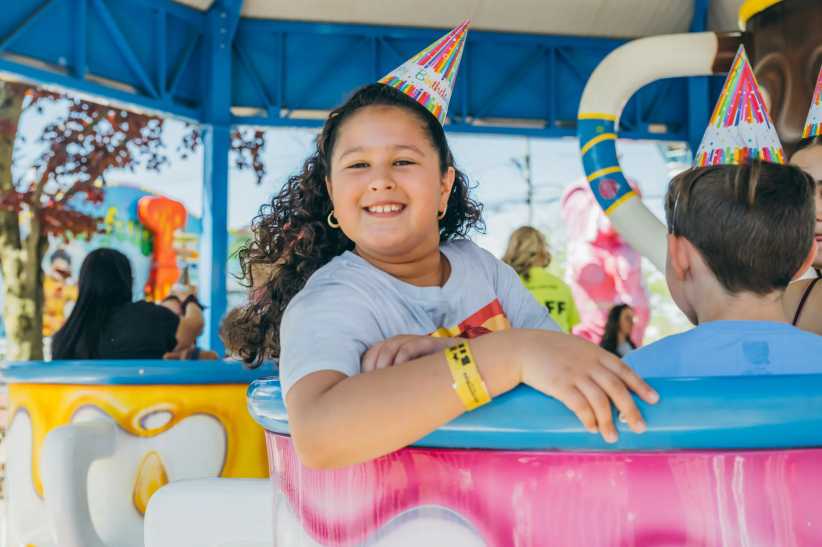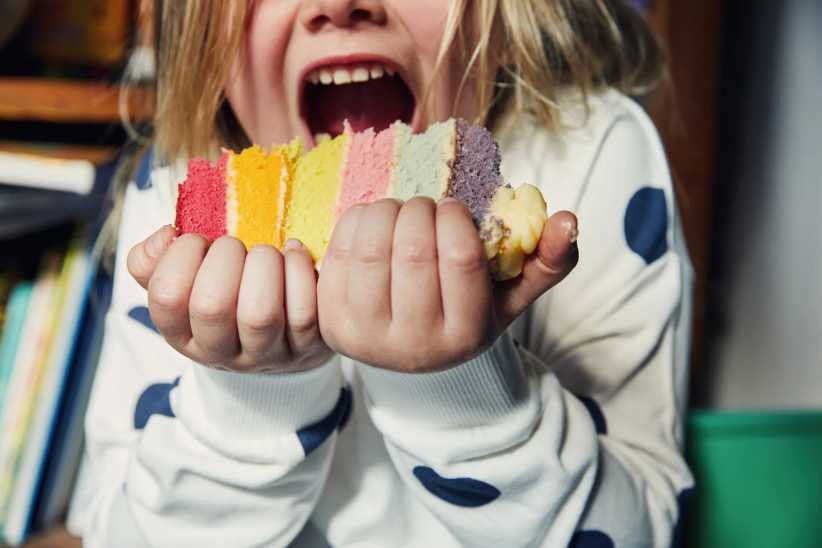When I turned 9, my mom planned a birthday party I will never forget: She rented a limousine for my friends and me to ride in for an afternoon tea party. We dressed up in gowns and heels, got our hair and nails done, and then enjoyed finger sandwiches, cookies, and lemonade as we were chauffeured around town. To this day it has been a favorite birthday party of mine, and a memory I continue to treasure.
Birthdays are occasions that kids will remember for the rest of their lives, and birthday parties are a way to hold those memories in place. Sometimes, you want to make those celebrations extra-big, either because you’re marking a major milestone—such as a bar or bat mitzvah, quinceañera, or sweet 16—or simply for the fun of it. Planning a blowout birthday party can feel daunting, though. Where do you even begin? We asked event planners (though you may think they’re only for weddings, you can find those who plan children’s birthday parties, too) what to keep in mind.
Pick the venue and DJ (if you’re having one) first.
The venue is key when piecing together the rest of the details for your child’s party. This locks you into a specific neighborhood or town, and helps narrow down the options for additional elements, if desired, such as caterers and entertainment.
If you’re planning a bar or bat mitzvah and live in a town with a large Jewish population, it’s crucial to book your venue early. “If you wait too long, you may end up with a venue that’s too big or not big enough, or too expensive and not your style because you were stuck with what was available,” says Melisa Imberman, president of The Event of a Lifetime Inc., an event planning company based in Westchester County. Imberman sometimes suggests booking your DJ first once you know your date, since it will be the same regardless of the venue you choose.
For other types of birthday parties, families should start booking a venue at least a month beforehand. Marla Mase, founder of PARTYpoopers, a kids’ party planning company serving the greater New York area, says families call her anywhere from a month to six months in advance for all types of parties, including first birthdays. Securing a venue also allows you (or your event planner, if you’re using one) to see the space and pick out the décor and design for the party. “You can’t really plan décor and design if you don’t know where [the venue] is because you need to know what kind of space you’re working with,” Mase says.
RELATED: Throw a Kids Birthday Party While Social Distancing
Set a budget.
There is no particular amount of money families should set aside when planning a birthday party; it really depends on what they’re willing to spend. One helpful hint is to decide what aspects of the party to prioritize. For example, a family planning a daughter’s sweet 16 may invest more in having a DJ and photo booth, and may opt for cheaper food because it’s not the focal point of the party. “Your number of guests is the biggest contributor to your budget,” Imberman says. “There are some variables that are not going to change with your number of guests, but there are some, like food and beverage, that will.”
A benefit of hiring an event planner is they develop a rapport with vendors and venues and can offer discounts. Event planners have a list of clients they continually work with, which saves families the time and effort of doing their own research. “I represent a potential party every weekend, so although most people want to make customers happy, [vendors] want to make me happy because I bring them repeated business,” Imberman says.
Adjust the party to your child’s personality.
Some kids may be outgoing and want the spotlight on them, and some may just want to lie low. Never force your child into a situation that would make him unhappy. The party and vibe should reflect your child’s personality and feel like it’s very much his own party. Mase plans parties for children of all ages and remembers planning a bat mitzvah for a shy girl who did not want a DJ or dancing, so she instead planned a murder mystery theme. “It was a huge success without any dancing,” Mase says. “You have to know your kids—don’t create an event for them that’s not for them.”
Discuss details.
Event planners consider everything when putting together a party, from when food will be served to when dancing should start, and serve as liaisons to all moving parts. It’s a smart strategy for families to follow as well. For example, if there will be a candle lighting ceremony or speech, make sure that the first course of a meal will not be served at the same time, because no one will be able to hear what’s being said. If there will be a first dance, it shouldn’t start until after food service, so guests can finish their meals without the food getting cold. “Even if you have the best caterer and the best DJ, they likely will not talk to each other before the day, Imberman says: “I do a very detailed timeline and communicate it with everyone prior rather than running into an issue before the party.”
Consider hiring security.
It’s strongly recommended for sweet 16s, when teenagers may get rowdy. Security can help keep the kids in the party and out of trouble. It's also advisable to have adult chaperones on the buses (if there are any) to monitor the kids.
Let the professionals do their jobs.
If you’re working with an event planner, resist the urge to become very hands-on and micromanage the details. It’s much wiser to trust that your event planner knows what she’s doing. “You’re hiring someone so that you can enjoy and be at your own party,” Mase says. “I have seen times where people undermined their own events because they were not having fun.” There’s no use in worrying about potential problems—that’s what the event planner was hired to solve.
RELATED:
Birthday Resources in Your Area
Get Weekend Activities Sent to Your Inbox
Main image: Morgan I. celebrates her bat mitzvah, planned by The Event of a Lifetime, Inc., with her friends
Peter Oberc Photography













